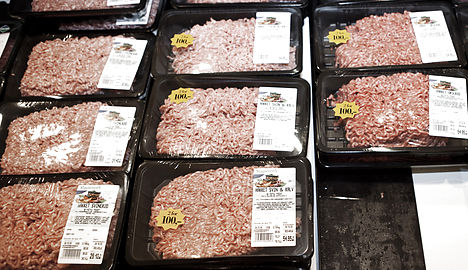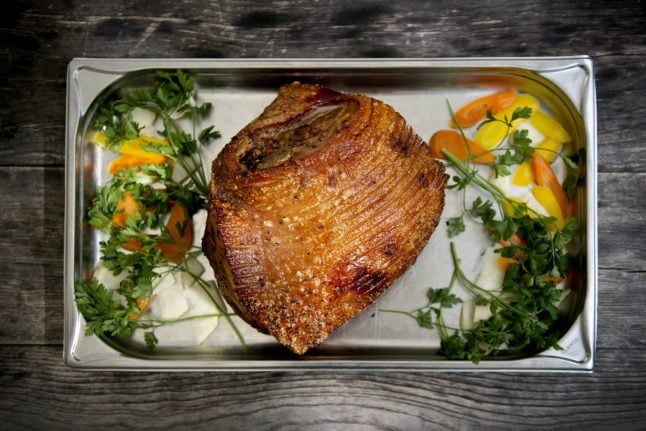PORK
Every fifth pack of pork carries MRSA
An analysis of pork products in Denmark’s supermarkets found that every fifth pack is contaminated with MRSA. Just five years ago, a similar analysis found the bacteria in just five percent of products.
Published: 24 September 2014 10:37 CEST

One of every five packages of pork contains MRSA. Photo: Thomas Vilhelm/Scanpix
TV Syd asked the Danish Food and Veterinary Administration (Fødevarestyrelsen) and the Techinical University of Denmark’s National Food Institute to analyze 100 packages of pork chops, roast pork, tenderloins and other pork products. The MRSA 398 bacteria was found in 21 of the 100 packages.
All of the pork was produced in Denmark and the samples also included organic pork products.
Hans Jørn Kolmos, a professor of clinical microbiology at the University of Southern Denmark called the findings “deeply alarming”.
“Swine MRSA can be spread through meat and this is a much bigger problem than salmonella or campylobacter, because the bacteria is much more robust. It cannot be removed by just soap and water and it can survive weeks in the joints of a kitchen table’s wooden boards or on a cutting board,” Kolmos told Politiken.
See also: Up to 12,000 infected with MRSA: experts
Yvonne Agersø, a senior researcher at the National Food Institute, said she wasn’t surprised by the findings of the analysis.
“We have seen a clear increase in the number of pigs with MRSA and that is naturally reflected in the fact that there is more swine MRSA in pork,” she told TV Syd.
The 21 percent of pork products containing MRSA is a massive increase over just five years ago. A similar analysis in 2009 found the presence of MRSA in just five percent of pork products. That number had increased to ten percent by 2011.
Kolmos has been a very vocal critic of the response to the MRSA outbreak by the Fødevarestyrelsen and the Danish Health and Medicine Authority (Sundhedsstyrelsen), saying that the government agencies “have massively failed”.
Fødevarestyrelsen has an official position that MRSA cannot be transmitted to humans through pork consumption.
“MRSA can be present in pork but all epidemiological studies show that meat is not the source of MRSA-infections or infections caused by non-resistant Staphylococcus aureus in humans,” the agency states on its website.
Nevertheless, the increase of MRSA in the Danish pig population has caused Norway’s largest retailer to consider a stop of all imports of Danish pork.
Url copied to clipboard!


 Please whitelist us to continue reading.
Please whitelist us to continue reading.
Member comments